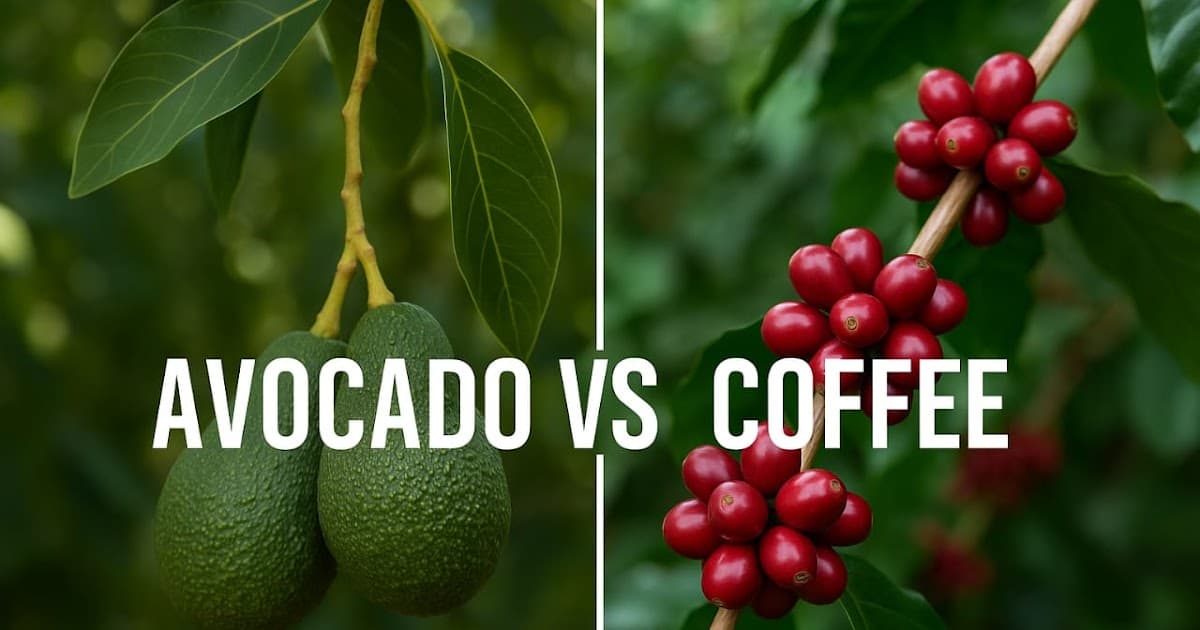We're loading the full news article for you. This includes the article content, images, author information, and related articles.
President Donald Trump's executive order scrapping tariffs on key agricultural imports could ease pressure on Kenyan exports like coffee and avocados, which faced significant duties amid a broader US trade protectionism shift.

WASHINGTON D.C. – In a significant policy reversal, United States President Donald Trump signed an executive order on Friday, November 14, 2025, eliminating sweeping tariffs on over 200 food products, including coffee, avocados, and tea, which are crucial exports for Kenya. The move, effective retroactively from midnight on Thursday, November 13, is seen as a response to mounting domestic pressure over rising grocery prices and recent electoral setbacks for the Republican Party.
The White House stated the exemptions apply to goods that cannot be produced in sufficient quantities domestically. This decision marks a sharp departure from Trump's long-held protectionist stance, which saw a baseline 10% tariff imposed on imports from nearly all countries earlier in 2025, disrupting global trade dynamics that had long favored Kenyan products under the African Growth and Opportunity Act (AGOA).
The removal of these tariffs offers a potential lifeline to Kenyan agricultural sectors that have been bracing for significant economic impact. The 10% tariff threatened to erode the competitiveness of key exports. According to the Central Bank of Kenya, the country risked losing as much as $100 million in annual export revenue. The textile and apparel industry, a major employer within Export Processing Zones (EPZs), was also facing the prospect of factory closures and job losses.
Coffee, in particular, has recently become Kenya's top export to the U.S., with exports surging 83.5% to KSh5.71 billion in the first half of 2025, according to the Kenya National Bureau of Statistics. The now-removed tariff had posed a direct threat to this growth. Similarly, Kenya's burgeoning avocado sector, which has seen fruit exports overtake coffee as a top revenue earner in early 2024, stands to benefit. The nation is actively seeking to expand its avocado exports beyond Europe into the lucrative North American market.
While the Kenyan government had previously suggested the 10% tariff was lower than that faced by competitors, providing a potential silver lining, the complete removal is unequivocally better news for producers of the exempted goods. The rollback is expected to stabilize trade relations and support the livelihoods dependent on these agricultural exports.
The policy reversal appears heavily influenced by domestic political and economic pressures. The Trump administration has faced increasing criticism over the rising cost of living, with economists attributing inflation in part to the import tariffs. Data from the U.S. Bureau of Labor Statistics for September showed significant year-over-year price increases for food items, with beef and veal up 14.7%. Overall costs for food consumed at home rose 2.7% in September.
The decision follows a series of victories for the Democratic Party in state and local elections on November 4, 2025, in Virginia, New Jersey, and New York City, where voter concerns about affordability were a central issue. In response to the tariff rollback, Democratic Representative Richard Neal of the House Ways and Means Committee stated, “The Trump administration is finally admitting publicly what we've all known from the start: Trump's trade war is hiking costs on people.”
President Trump, however, has continued to deny that his tariffs are the primary cause of inflation, instead blaming policies of the previous administration. The White House fact sheet accompanying the executive order attributed the change to “significant progress the President has made in securing more reciprocal terms for our bilateral trade relationships,” including framework deals with several Latin American countries.
This tariff rollback occurs as the African Growth and Opportunity Act (AGOA), a cornerstone of U.S.-Africa trade relations, is set to expire in September 2025. The previous imposition of tariffs had effectively nullified the preferential, duty-free access Kenya enjoyed under AGOA for many of its key exports. Negotiations for a free trade agreement (FTA) initiated under the Trump administration in 2020 did not continue under his successor, shifting instead to a Strategic Trade and Investment Partnership (STIP) that does not address tariff barriers.
The exemption of coffee, tea, and avocados is a positive development for East Africa's largest economy. However, the broader trade relationship remains subject to the shifting priorities of U.S. domestic policy. Kenyan officials and export bodies will be closely monitoring the situation, as the long-term stability of trade terms remains a critical factor for sustained economic growth.
Keep the conversation in one place—threads here stay linked to the story and in the forums.
Sign in to start a discussion
Start a conversation about this story and keep it linked here.
Other hot threads
E-sports and Gaming Community in Kenya
Active 9 months ago
The Role of Technology in Modern Agriculture (AgriTech)
Active 9 months ago
Popular Recreational Activities Across Counties
Active 9 months ago
Investing in Youth Sports Development Programs
Active 9 months ago